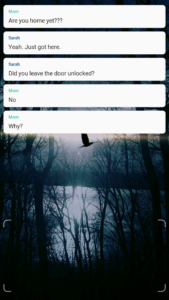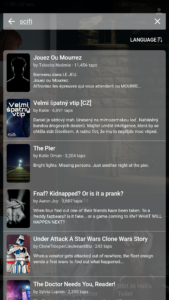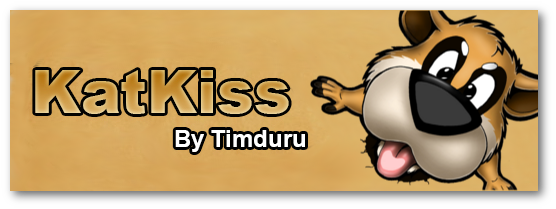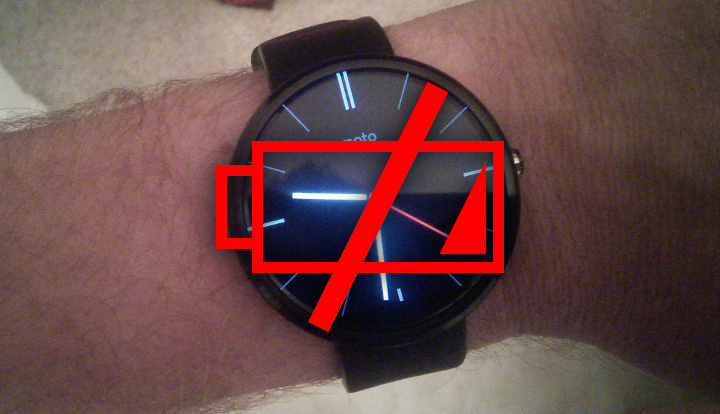A few months ago, I explored what I labeled microfiction using an app called Talehunt. Today, I’m about to explore yet another short fiction style that may be on the upswing: chat stories.
Most of you that read this have used SMS, Facebook Messenger, Twitter, Google Hangouts, Snapchat or any of the other chat apps out there. They’re everywhere, all the time. Day in and day out, we see kids on their phones, tapping away. Ok, so yes, adults too. This means that these same individuals unfortunately are spending less time reading books. Wattpad, the online fiction writing site, has decided to take advantage of this by releasing a new app aimed directly at those folks that just can’t put their phones down by turning chats into stories.

Really, it’s pretty smart. You have millions of young people that spend massive amounts of time on their phones messaging one another. How do you get these people to read fiction? Introduce stories into the context of their lives, of course. Or, at the very least, it would seem that’s the idea. Introducing the app Tap.
The concept of Tap is simple. The stories that you can read are formatted as chats between individuals or entities. So really, what you read is all this back and forth and that’s the story. At first glance, this may just seem ridiculous. How could you ever build a good story in the format of a chat? You’d be surprised.
To be honest, I haven’t read a whole lot of these stories yet but those that I have read have something in common: by using only chats between the main characters of the story, they’re able to create the conflict of the story, the climax, the resolution. They create the setting in which the story is taking place through the idle chat of the main characters, they create the tension that builds as things go wrong and so on. Honestly, writing stories this way that are good does take a bit of thinking things through (in my opinion).

The stories are divided into various categories that you find on other sides. Adventure, romance, suspense, drama etc. By searching, you can also find stories that don’t fit into the main categories. Once you find something you like, either by searching or by picking a story from the front page, you start tapping through the story. What this really means is that for each tap on the screen, you advance the story one chat segment. Taps is also how the popularity of stories are measured. While Wattpad measures by chapter views/reads, Tap measures by how many taps you did on a story. So, for example, if a story has 100 chat segments and the story’s stats only shows 50 taps, it’s safe to say that whomever started to tap lost interest halfway through. On the other hand, 150 taps could mean three dissatisfied reader or one that read it all the way to the end and one that lost interest. Anyways, the more taps, the more popular the story.
Initially, the stories on Tap appears to have been created by a selected few but just within the last week, Tap has been opened up to anyone that wants to write a chat story. I even tried my hand at it, although I admit that the result is less than stellar (check it out here: https://taptap.app.link/d6TrfiGseB).

How does Tap fit into the wider universe of fiction then? Obviously, it’s designed for a very particular segment and I’m sure that it is well received by that segment. However, even for those that mostly work on longer fiction, I can see Tap as an interesting detour to drum up interest. For example, in some of my own stories, I can imagine conversations going on in the background between characters as you read the main story, conversations that could be interesting to read later. For example, with my rework of my short story Intervention (also on Wattpad), I’ve found instances where a Tap chat story could fit in almost as a small mini-chapter between chapters. I’m not sure yet whether I’ll actually go there or not but it’s an interesting concept to explore.
Will Tap be around a year from now? I’m not sure I have the answer to that. Judging by the initial tap volumes I see on stories (some in the millions), there is certainly an audience that seems eager to consume whatever is published but in the end, I’m not sure it’ll ever be more than a complement to existing stories or a fun way for those that aspire for greater fictional works to get started. As such, the match that lights the fire of a future fiction writer, Tap is an interesting medium and I’m curious to see where it goes from here, now that the floodgates are open.
If you’re interested in checking Tap out, their website is here: https://taptaptap.co/. You can read a sample story online and then download the app on your Android or iOS device to read more and write your own stuff.





